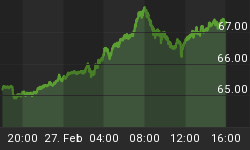Barron's June 16, 2008 featured an article, Keeping the Faith, about how funds adhering to Islamic (Shariah) investment principles have avoided the greatest effects of the current credit crisis.
We found the same tendency to be true in a study we performed for Business Islamica Magazine of Dubai, U.A.E in 2007. (download PDF version of article here).
Interest, whether paying or earning it, is to be avoided in Shariah compliant investing. The result is that banks and insurance companies, for example (fund proxies: KBE, KIE, and XLF) are not found in Islamic funds.
There are other prohibited investments, but the overwhelming economic impact of Shariah investing is the avoidance of financial companies and leveraged companies.
The story is not all positive however. As logic would suggest, and as our study demonstrated, Shariah compliant funds outperform the general market (whether US, Europe, or Japan) in times when financials do badly, and underperform the general market when financials do well.
In any event, Shariah compliant funds are proliferating globally and their assets under management are growing very rapidly, due in part to the increased petro-dollar flows to regions where Shariah compliant investing is attractive.















